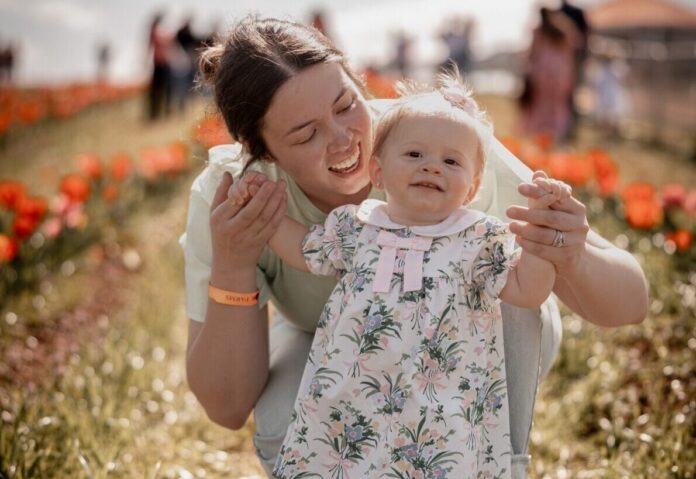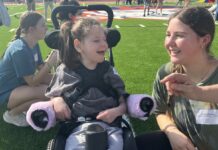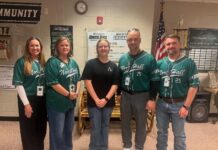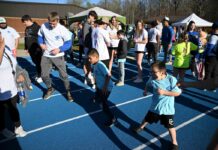
It is typical for any child in the Foster Care System for more than a few weeks to know that change is coming. The changes come in many shapes and sizes: change of school, change of house, change of Social Worker, change of beds. They learned to keep their few possessions close because there is always a pending move, pending visit, or pending new person. The one constant that every child in the Foster Care System knows? Change.
State of Georgia
Currently, in the State of Georgia, there are approximately 11,000 children in the Foster Care System, according to statistics from the Georgia Department of Human Services, Division of Family and Child Services. Options for children in the State of Georgia who are in Foster Care are relatives (if available), a Foster Family, a Group Home (if a Foster Home is not available), and sometimes, even a hotel with Social Workers caring for them until an option becomes open.
Children stay in the Foster Care System until their parent or parents are ready for them to return home, parental rights are terminated and/or adoption occurs.
Georgia also has a program for teens, Georgia’s Independent Living Program (ILP). This program offers youth who have been in the Foster Care System or are currently in the system an opportunity to learn to transition into adulthood. Teens are taught to become self-sufficient, maintain employment, and live independently.
Raven Sims, Social Services Supervisor for Hall County spoke with Now Habersham about the need for Foster Parents. “I was a foster parent for 8 years. It is a calling. We are currently reopening our home for a relative in need.”
Sims said it is tough because Foster Parents interact with children from all walks of life, but she believes, that when children are given a positive environment and the ability to deal with the traumas and hurts in a loving setting, it benefits everyone.
“I want to encourage people to help. These kiddos are put in situations that are not their fault. Making Foster Care less traumatic for those who have already been through so much, is the ultimate goal. But, we have to have the families.” Sims explained.
Child Protective Services
Julia Love, a licensed Social Worker, has worked in various positions in the Department of Social Services, including Child Protective Services (CPS), where she developed a love for the area of child welfare. “I began my career with Onslow County (North Carolina) Department of Social Services in June of 2019 in investigations. During this time, I learned more about child welfare and ‘the world of CPS’.”
At the age of 22 and a newly graduated student from the University of North Carolina, Love remembers her belief that she could “save the world”. Her husband, a United States Marine, was stationed at New River Air Station in Jacksonville, North Carolina.
Her love for people, especially children, was the driving force behind her decision to go into the field of Social Work. If she could make a difference in the lives of others, she wanted to do it.
“I learned very quickly, that you have to meet people where they are, and the social worker does not need to work harder than the client. This was difficult because I wanted to save people,” Love speaks from the heart about her experiences in dealing with parents and children who are in the Foster Care System. “The reality is, no state is a ‘good parent'”
To remove or not to remove
“In the state of North Carolina, it is very family-centered, and removal of children did not happen often which then at times put children who were left at risk,” Love explained. “When removed, children sat in Foster Care for years until reunification, adoption, or guardianship was achieved.”
Love admits her time in North Carolina shaped her into who she is today. “I believe it made me a better social worker.”
In 2020, Love’s husband’s time in the Marine Corps came to an end and he was offered a job in Greenville, Texas. During this time, Love worked for the Department of Family and Protective Services as a Conservatorship Specialist I. “In this position, I worked with children in foster care and their families,” Love explained. “Texas was very fast-paced where if a parent was not showing significant progress by 6 months, they were being scheduled for a termination trial to terminate their parental rights.”
Under the pressure, if a parent needed more time there had to be extenuating circumstances for an extension to be given. “Seeing the court system move quicker made me feel better as I felt parents were pushed more to do right for their child,” Love reflected.
She also saw the heartache of parents who relinquished their children and walked away. Working in this environment took a toll on Love emotionally and physically. The position challenged her. Along with carrying a full caseload, Texas required caseworkers to work CWOP “Children Without Placement” shifts. This was where children who were in the state care and did not have placement options were placed in houses, hotels, and offices throughout the state. Caseworkers needed to work 6 shifts a month to care for these misplaced children.
Many of the children in her department had severe trauma, mental health, and behavioral issues. Love recalls getting off work at 5:00 p.m. or 6:00 p.m. and then going to a CWOP shift until 12 a.m. “Many of the shifts consisted of ‘runaway protocols’ due to children being at risk of running away or assisting with a child going to the hospital for mental health issues. Sometimes it was about managing aggressive and vulgar behaviors in teenagers.”
Love remembers her desperate feeling because she knew the lives these children were leading weren’t right. She questioned everything. Why wasn’t there something better? Why were these children in this mess in the first place?
Most children in these cases are in fight or flight mode. So many people were in and out of their lives. They needed stability and answers.
Moving to Georgia
In May of 2022, she learned she was pregnant and they decided to move back home to Georgia to be near family. Love took a job at Health Connect America, a child placement agency that licenses foster homes. She also completed her Master of Social Work Degree.
Georgia’s system was different from Texas’s. Parents are given endless amounts of time to get it together which in some ways is good and in others not so good. Love said it amazed her to see children in the system year after year with the same goal of reunification in place. As time went by, Love felt she had lost her “why” and left child welfare to work in a hospital setting.
“All types of children come into care,” Love began. “There is no one certain type of child. Whether it is from abuse or neglect or a parent being incarcerated or even the death of a parent, there are many reasons.”
Love explained that reunification can be difficult, but in the end, it is amazing. She also indicated that adoption and having a child find a forever home is amazing as well. In some cases, reunification is the best solution, but in others, it is not.
Foster parenting
In Georgia, there is a critical shortage of Foster Family Homes. During the pandemic, the need for Foster Homes increased and those applying to become Foster Homes decreased.
Finding homes for older children is difficult as well as sibling groups. There are instances where children are separated from their siblings because there just isn’t enough space or a willingness to house more than one child.
Love recognizes the hardships those who are working to care for children face. “Whether it is the social worker or the foster parent, the experience is not for everyone but if there is one thing I can say it is if you can open your heart, soul, and home to foster children, the experience is well worth it.”
To open up your home and become a Foster Parent, you can call your local county DFAC office or Google how to become a Foster Parent in your county. In this way, you can learn what the necessary steps are.
“These children are a part of our world’s future, and they need love and support during the toughest times in their lives,” Love expressed.







